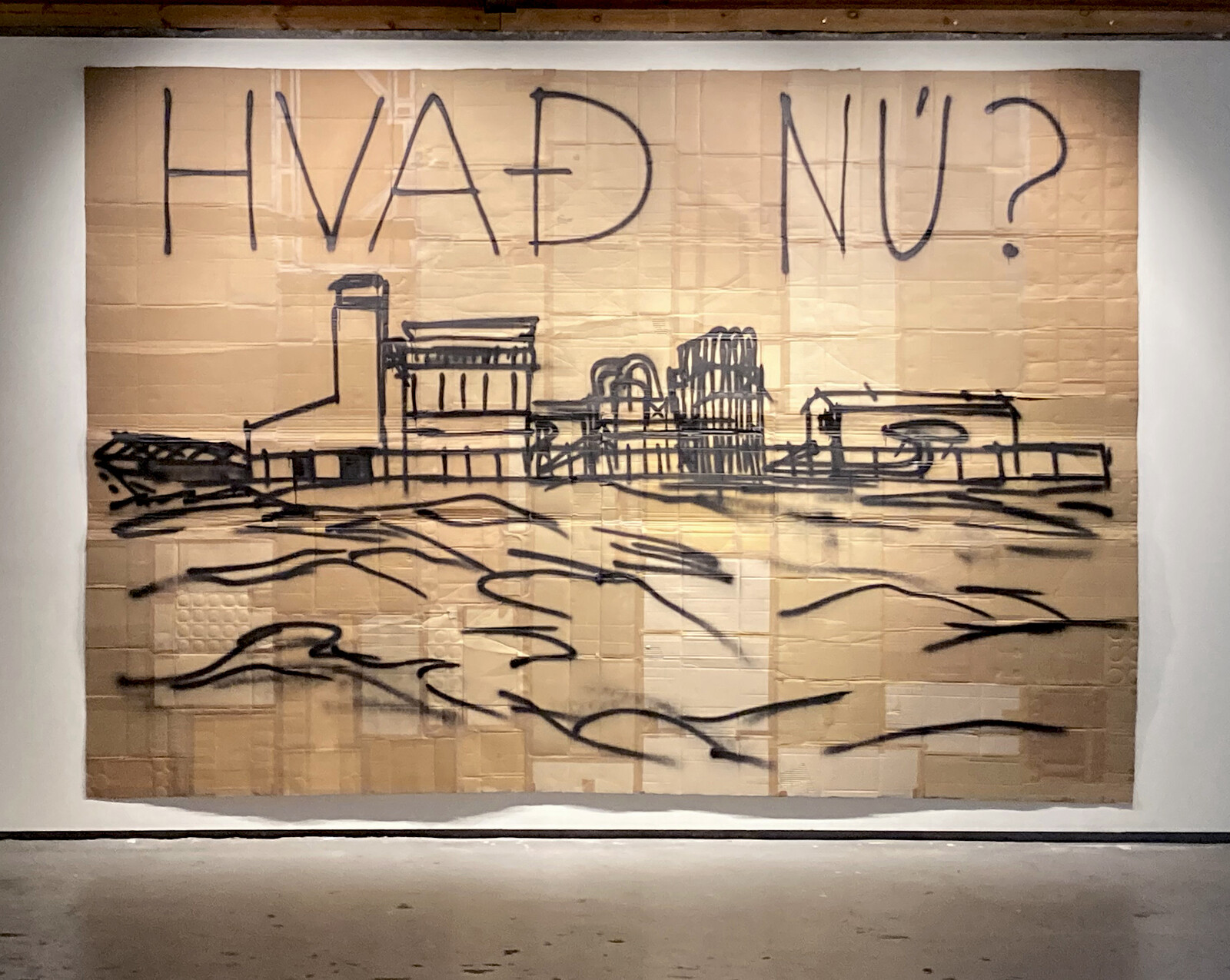Deconstruction of Heavy Industry in Helguvík
February 24–April 28, 2024
The Reykjanes Art Museum is pleased to announce the exhibition and project in process, Deconstruction of Heavy Industry in Helguvík and the launch of its publication, by the artists Libia Castro & Ólafur Ólafsson and The Magic Team in collaboration with the local activist group Opponents of Heavy Industry in Helguvík, Auður Önnu Magnúsdóttir, director of the Icelandic Women’s Rights Association, former director of Landvernd, the Icelandic Environment Association Landvernd, economist Ásgeir Brynjar Torfason, architect Arnhildur Pálmadóttir and curator Jonatan Habib Engqvist.
The empty shell of a large industrial building is staring at us from the horizon. The ghost of a closed down, polluting and bankrupted silicon plant located in Helguvík on the seismically unstable Reykjanes peninsula, a stones-through from the museum. A peninsula still haunted by the unclear environmental aftermath of the Naval Air Station Keflavik (NASKEF) which closed in 2006.
With Deconstruction of Heavy Industry in Helguvík the artists once again embark on a situated community scale art and activist project. This time addressing the catastrophic rise and fall of United Silicon. A factory ironically projected to become the world’s largest silicon plant – with groundbreaking shoveling by the directors, local politicians, Iceland’s minster of industry and the prime minister at the time. Shortly after the prime minster resigned, having appeared in the Panama Papers with his offshore shell company that had not been disclosed to parliament.
After operating only ten months the factory was closed down by the Environment Agency of Iceland for environmental and health reasons after strong civic commitment from local residents. Becoming perhaps the shortest lived silicon factory in history. Yet its ghostly shadow lingers on and it’s future undecided.
Castro & Ólafsson continue their collaborative work in tandem with activism, working with people and stretching beyond disciplines. Practicing art as a useful tool, serving to question and rethink the area’s past and present and agitating towards imagining future proposals, they turn the museum into a porous, situated site of contestation and creation. The exhibition encompassing field research, ink and spray drawings, textile printing, photography, public discussions, performance, film and a publication.
By focusing on social and environmental engagement, this exhibition brings together diverse backgrounds, voices, and perspectives in Reykjanesbær, the largest migrant and international community in Iceland. The dialogues have developed into work-collaborations throughout the exhibition, towards an interventionist performative public artwork addressing the situation of the factory and the site in relation to the community, the sustainability and protection of nature in the area and imagined futures.
Libia Castro & Ólafur Ólafsson started their artistic team in the Netherlands in 1997. Their works are collaborative and transdisciplinary; working with multimedia environments, performance and interventions. They represented the Icelandic Pavilion at the 54th Biennale di Venezia (2011) and have showed their work in solo and group shows at the 8th Havana Biennial, The National Gallery of Norway, Manifesta 7, La Casa Invisible Málaga, the 19th Sydney Biennial, Appel CAC Amsterdam and Platform Garanti CAC Istanbul. They were awarded Basis Price Prix de Rome 2009 in The Netherlands and the 2021 Icelandic Art Prize.
Jonatan Habib Engqvist is a curator, author and occasional teacher. Co-editor of Ord&Bild, curator of experimental projects and over 50 exhibitions on 4 continents including international biennales and festivals Art D-0 ARK Underground, VR Pavilion at 58th Venice Biennale, Cycle Music & Art Berlin/Reykjavík, Survival Kit Riga, Sinopale Turkey, Momentum Norway, and was artistic director for New Småland on commission of 4 regional art institutions and a university. Founding director of Curatorial Residency in Stockholm, previously manager of visual art at Iaspis, curator at Moderna Museet and employed at Royal Institute of Art, Stockholm. His writing has been published widely in several languages in publications around the world.
Deconstruction of Heavy Industry in Helguvík is sponsored by the Museum Council of Iceland. Libia Castro & Ólafur Ólafsson’s project is supported by The Icelandic Visual Arts Council, The Icelandic Visual Art Copyright Association, CBK Rotterdam art fund (Center of Visual Arts Rotterdam) and The Mondriaan Foundation.










